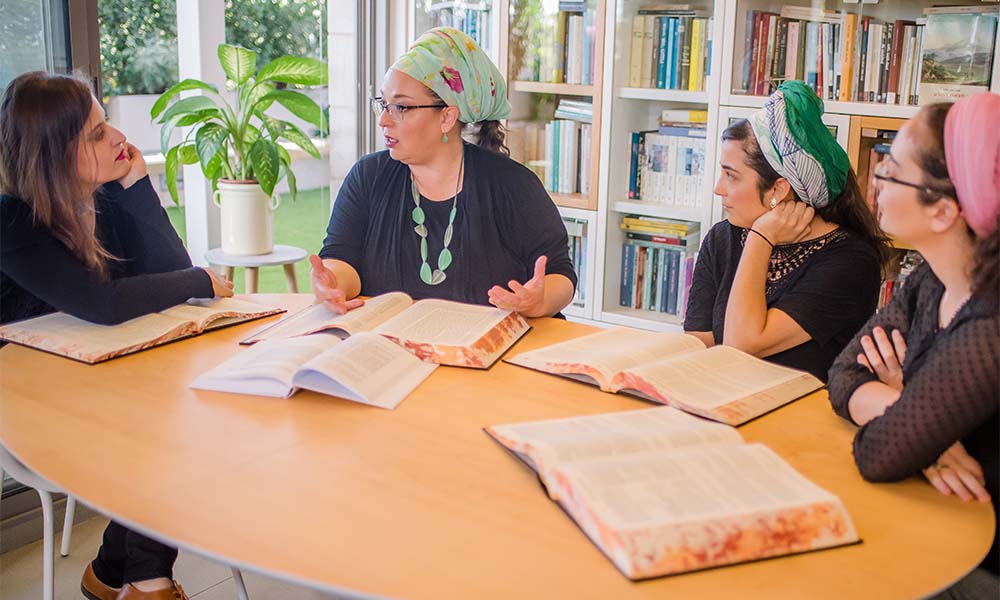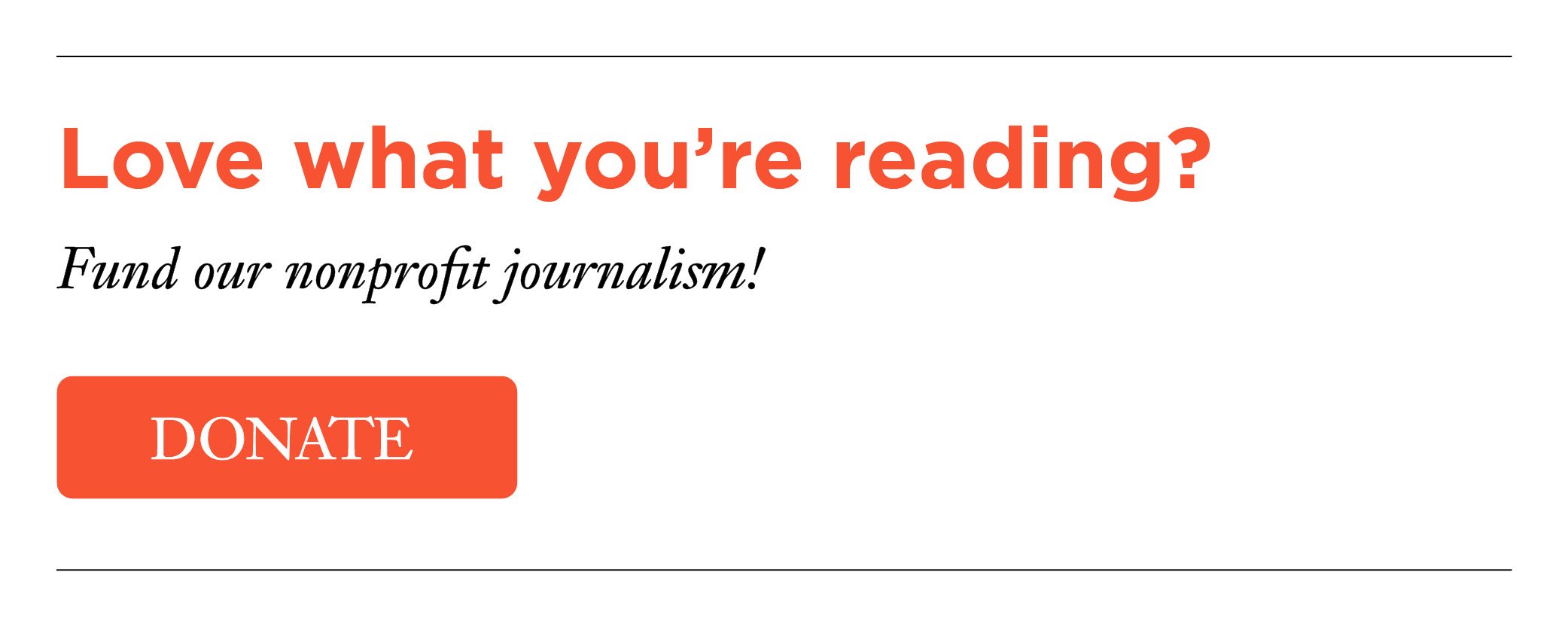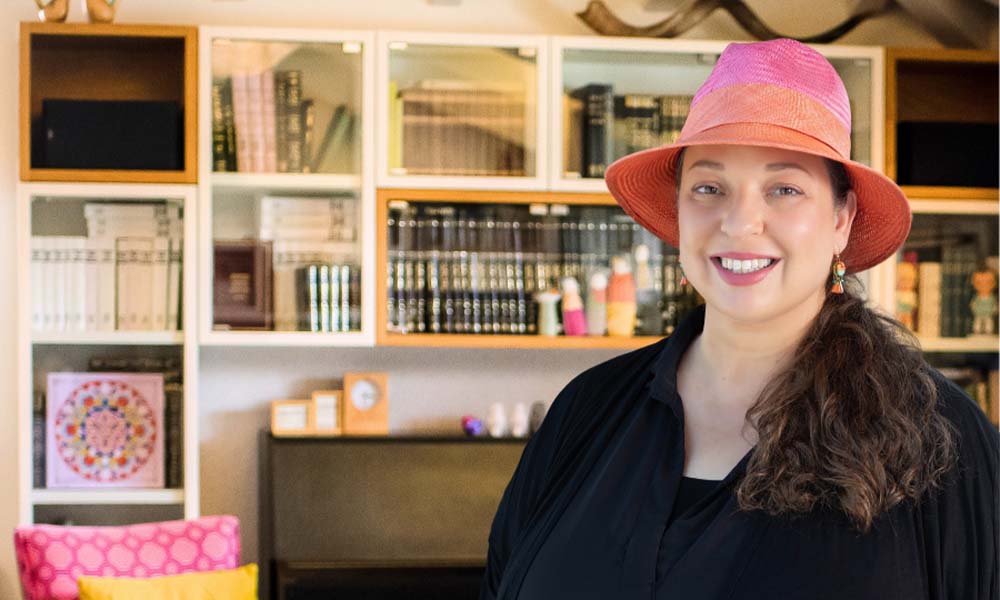
Last week, Israel’s High Court of Justice ruled that women must be permitted to take the official examinations for rabbinic ordination offered by the Chief Rabbinate. Specifically, it ruled that barring women from taking the same exams as men “is prohibited discrimination without sufficient justification.”
It is not clear when the ruling will take effect, or whether the Chief Rabbinate will indeed implement it at all. Yet, the landmark ruling is a significant step toward women’s equality within both secular and religious Israeli institutions as well as a recognition of their learning and contribution to Jewish religious life. Although the ruling stops short of stating that women should be entitled to be ordained as rabbis, it includes a provision that the certificate given to women who pass the rabbinical exam will be regarded as equal to the certificate given to men with the same academic and financial benefits.
“This is for our daughters and granddaughters. Girls in high school will be able to think of committing themselves to Jewish learning as their natural due.”
The ruling was given in response to a petition brought before the court in 2019 by five female Torah scholars; ITIM, a religious rights organization; the Rackman Center for the Advancement of Women’s Status at Bar Ilan University; and the Kolech Religious Women Forum.
The court rejected the argument presented by the Chief Rabbinate, the body that is responsible for religious affairs for Jewish citizens, which contended that the tests are only for ordination (which the petitioners did not request). Justice Noam Solberg, who authored the ruling for the three-judge panel, whose decision was unanimous, wrote, “Rabbinical examinations have two goals: One is for those who wish to acquire rabbinic ordination to serve as communal rabbis in Israel, and the other is to grant financial benefits to those who have passed the examinations, as they are deemed equivalent to an academic degree, which in many professions including civil servants, police and academia, confers a higher level of remuneration.”
Solberg went on to say that “barring women—‘expounders, righteous and wise’—from the opportunity to take exams held by the Chief Rabbinate constitutes prohibited discrimination, for which there is no sufficient justification—in fact, no justification at all.”
“We welcome the courageous ruling of the Court,” Professor Ruth Halperin-Kaddari, head of the Rackman Center, told Moment. “Finally, after six years of struggle against the Rabbinate, the High court has mustered the courage to do the right thing. This ruling represents a significant milestone in the struggle against the exclusion of women from leadership and guidance roles in Jewish religious life.”
The tests administered by the Chief Rabbinate relate to the major areas of Jewish law, including kashrut, family purity laws, Shabbat, mourning and marriage laws. Passing the test is a prerequisite not only for rabbinic ordination but for numerous other positions, such as teaching religion in secular schools or serving in administrative positions in various ministries and local councils. And since passing the tests is considered equivalent to receiving an academic degree, it leads to higher salaries and other financial benefits.
Under the previous Israeli government, a number of steps were taken by then-Religious Services Minister Matan Kahana to advance the status of women in the Israeli state religious framework, among other reforms. This included naming a number of women to head local religious councils.
However, the current government has given over the Religious Services Ministry to Michael Malchieli of Shas, the Mizrahi Haredi party, who has rolled back those changes, with the approval of the coalition headed by Prime Minister Benjamin Netanyahu.


Rabbanit Sarah Segal-Katz, who was one of the petitioners, tells Moment that the decision will provide religious women with the “agency they have been denied,” noting that she has been unable to apply for numerous secular religious positions due to a lack of formal credentials. “Now, I will have those credentials.”
Furthermore, Segal-Katz says, the Court’s decision does not apply solely to the religious world, especially given the lack of separation between religion and state in Israel. “The Chief Rabbinate is a state institution, and therefore the rabbinate cannot discriminate between men and women,” she says.

Rabbanit Sarah Segal-Katz. Credit: Efrat Heller
Yet the implications of this decision extend beyond liberal understandings of equality between men and women. “This is for our daughters and granddaughters. Girls in high school will be able to think of committing themselves to Jewish learning as their natural due. And they will receive the same stipends and scholarships to study that men receive, so the opportunities will not be limited to the economically privileged.”
Segal-Katz also sees this decision bringing progressive religious women to Israel. “In the United States, the role of women in religious communities is more established. Women religious leaders may be hesitant to come to Israel because it would mean degrading their position.”
Yet most important, she emphasizes, is the feeling that she and the other petitioners, and the thousands of women who are studying Judaism and Jewish law, are “creating a horizon for ourselves. We have been prevented from feeling fully at home because our knowledge and abilities were not fully valued. We are entitled to feel at home in the place that is, indeed, our home.”
Rabbi Seth Farber, head of ITIM, whose stated mission is to make Israel’s religious establishment more inclusive, praised the court’s decision in a written statement. “This is a historic and significant moment not only for religious women, but for religious Zionism as a whole. Women’s Torah study is one of the most important and impressive enterprises of recent decades, and today it is finally receiving institutional recognition of equal value.”
In contrast, the decision was criticized in the more conservative Orthodox and haredi press. “The High Court of Justice vs. the Chief Rabbinate,” one banner headline blared. Similar responses connected the decision to the ongoing tension between the haredi world and the High Court of Justice, which, the haredi rabbis and leaders contend, is forcing secular norms and liberal values on their way of life. (For an extensive review of this issue, see, “High Court in the Hot Seat”).
Rabbi Dr. Eliyahu Zini, head of the Ohr V’Yeshuah Hesder Yeshiva in Haifa, said in an interview with Srugim, a website dealing with religious matters, that the Supreme Court ruling requiring the Chief Rabbinate to allow women to take rabbinical exams is, “a case of ‘Yehareg ve’al ya’avor’” (which translates to “one must be killed rather than transgress”). “The court has no right to intervene in a religious issue.”
The Chief Rabbinate, which is dominated by haredi representatives and rabbis, did not respond to Moment’s request for a response and has yet to publicly respond to the court’s decision. Furthermore, it remains to be seen how it will even administer the tests, given its general insistence on separation between men and women.
“The next exams are in Tishrei [the Hebrew month starting on September 23],” says Farber. He intends to encourage qualified women to register. “And on the registration,” he continues, “it asks you, ‘Are you male or female?’ And the women will say they’re female, and we’ll see what happens.”
“I already have three rabbinical degrees, says Segal-Katz, “but there is an importance to the imprint provided by formal institutions. I have been acting as a rabbinic counselor and authority for years, but have never had the recognition and have never been paid for my services, unlike men.” Currently abroad, she concludes, “I’m willing to come back to Israel for this, to take the test, to take this important step for women and for Judaism.”
Top image: Rabbanit Sarah Segal-Katz (second from left) teaches Torah. Credit: Ayelet Landau
